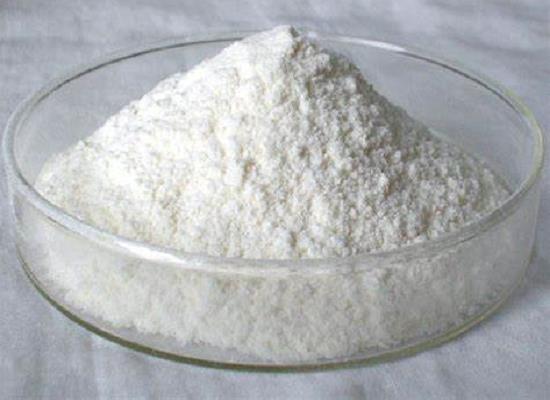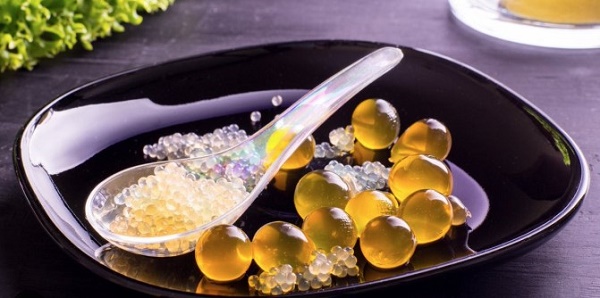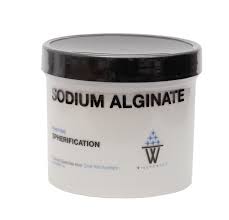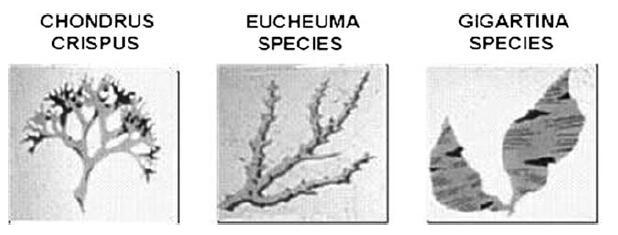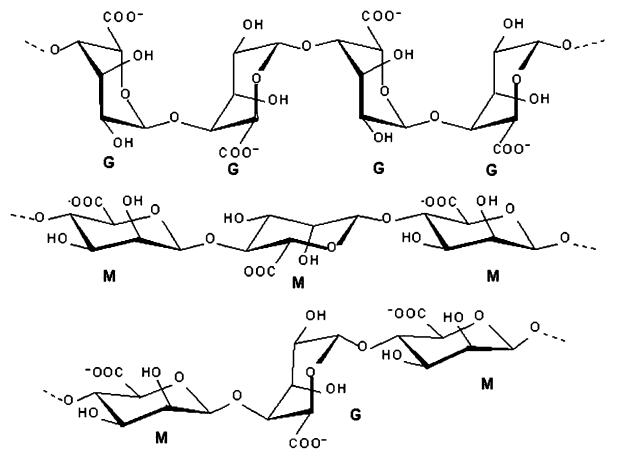Alginate - Application in Meat Products
Sodium alginate, also called as Algin, is a kind of white or light yellow granular or powder, almost odorless and tasteless. It is a macromolecular compound with high viscosity, and a typical hydrophilic colloids. Because of its properties of stability, thickening and emulsifying, hydratability and gelling property, it is widely used in food, pharmaceutical, printing and dyeing, etc.
Sodium alginate is a neutral salt in which the carboxyl groups of alginate are bonded with a sodium ion. Alginic acid is not soluble in water but sodium alginate is soluble in both cold and hot water to produce a smooth viscous solution. When calcium ions are added to a sodium alginate solution, calcium ions react instantly with alginate to form a gel. The time taken to form a gel can be controlled by controlling the calcium ions. These unique properties result in sodium alginate being used as a thickener, gelling agent and stabilizer in a wide range of industries.
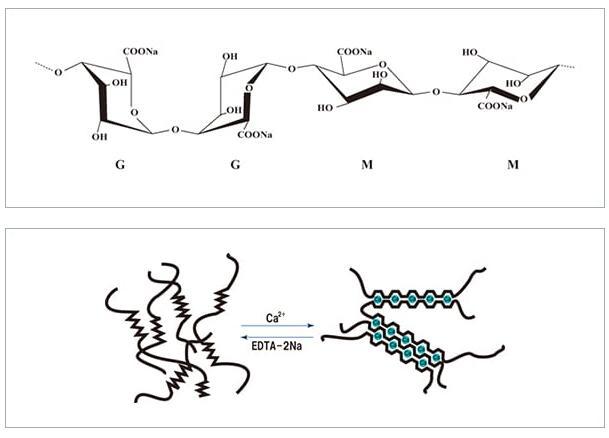
Increasing the value of under-utilized muscles of food animals has been the target
of many published reports involving alginate. Many of these muscles, usually
originating from the hind leg or shoulder area, are under utilized due to lower
palatability. Connective tissue removal, tenderization, and comminution improve
the raw material. Restructuring allows for the recombination of the meat into a
shape that is easily recognized and handled. Early reports on restructuring meat
products promote the use of salt and/or phosphate to aid in the extraction of proteins
which hold the meat particles together once the product is heat processed.
However, in the raw state, a product made in this way must be frozen in order to
retain its integrity. Marketing an unfrozen or uncooked restructured product processed
using only salt and phosphate is virtually impossible. Storage stability and
visual appearance of these products are also a concern, since products containing
salt have a tendency to oxidize at a faster rate.
To overcome the need to freeze or cook restructured products, a binder was sought that becomes active without heat and holds the pieces of meat together in both the raw and cooked state. Sodium alginate, a common ingredient in the food industry, is a hydrocolloid that gels in the presence of multivalent ions and forms a heat-stable gel. Utilizing this process has the added advantage of not requiring the inclusion of salt or phosphate for protein extraction and, because of the heat-stable gel formed, the integrity of the structured product withstands normal cooking temperatures for meat products (Clarke, Sofos, & Schmidt, 1988 ; Means, Clarke, Sofos, & Schmidt, 1987 ; Means & Schmidt, 1986).
Increasing the value of under-utilized muscles of food animals has been the target of many published reports involving alginate. Many of these muscles, usually originating from the hind leg or shoulder area, are under utilized due to lower palatability. Connective tissue removal, tenderization, and comminution improve the raw material. Restructuring allows for the recombination of the meat into a shape that is easily recognized and handled. Early reports on restructuring meat products promote the use of salt and/or phosphate to aid in the extraction of proteins which hold the meat particles together once the product is heat processed.
However, in the raw state, a product made in this way must be frozen in order to retain its integrity. Marketing an unfrozen or uncooked restructured product processed using only salt and phosphate is virtually impossible. Storage stability and visual appearance of these products are also a concern, since products containing salt have a tendency to oxidize at a faster rate.
To overcome the need to freeze or cook restructured products, a binder was sought that becomes active without heat and holds the pieces of meat together in both the raw and cooked state. Sodium alginate, a common ingredient in the food industry, is a hydrocolloid that gels in the presence of multivalent ions and forms a heat-stable gel. Utilizing this process has the added advantage of not requiring the inclusion of salt or phosphate for protein extraction and, because of the heat-stable gel formed, the integrity of the structured product withstands normal cooking temperatures for meat products (Clarke, Sofos, & Schmidt, 1988 ; Means, Clarke, Sofos, & Schmidt, 1987 ; Means & Schmidt, 1986).
You may like
Related articles And Qustion
See also
Lastest Price from Sodium alginate manufacturers

US $0.00-0.00/kg2025-07-10
- CAS:
- 9005-38-3
- Min. Order:
- 1kg
- Purity:
- 99%
- Supply Ability:
- 20MT
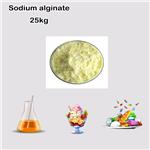
US $0.00/kg2025-05-06
- CAS:
- 9005-38-3
- Min. Order:
- 25kg
- Purity:
- 99% Food grade
- Supply Ability:
- 10000kgs

